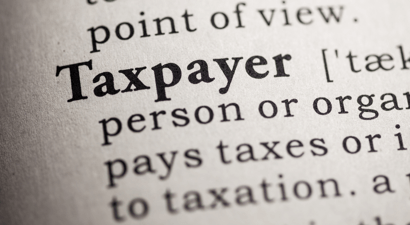A How To Guide for SARS Objections and Appeals
As a taxpayer, if you receive an assessment from the Commissioner of the South African Revenue Services (“SARS”) that you disagree with, you can lodge an objection in line with the Tax Administration Act, No. 28 of 2011 (“the Act”).
Under section 96(2) of the Act, the Commissioner has to supply the taxpayer with the grounds of the assessment. It is often the case that the taxpayer needs to demand that the Commissioner comply with this statutory obligation, as there have been many cases where grounds have not been supplied. The taxpayer is required to submit a request for grounds within 30 days of receiving an assessment. Once grounds have been supplied, the taxpayer has 30 days to submit an objection to the assessment.
Taxpayers need to submit the correct documentation for their objection in order for it to be valid:
For personal income tax payers a notice of objection or form NOO is required via efiling;
For corporate income tax payers a form NOO is required via efiling;
For trusts a form ADR1 is required via hand or email to the appropriate SARS official; and
For VAT, dividend taxes, payroll-related taxes and the like, a form ADR1 is required by post / hand.
SARS has been known to confuse their own process on occasion and dismiss objections on the grounds that the incorrect form / process was used, when in fact the taxpayer used the correct form / process. In such cases, the taxpayer needs to point out the SARS guidelines and legality of the situation to SARS and an order of apology will be issued and the objection properly confirmed.
When objecting, a taxpayer must unpack all the ground of objection in his / her letter to the Commissioner. He / she also needs to ensure that the grounds can be supported by all relevant documentation in order to substantiate his / her objection. As per ABC (Pty) Ltd v Commissioner for SARS, neither SARS nor the taxpayer may add to the grounds of objection without following the proper procedures as laid down in the Act.
An objection to an assessment does not suspend the obligation to make payment, therefore the taxpayer is still liable for payment of the tax and SARS may collect the tax whilst the dispute is on going. In order to ensure that SARS do not collect the amount of tax in dispute, the taxpayer can apply for a suspension of payment in terms of section 164 of the Act. Requests for suspension of payment must be submitted to the SARS collections official dealing with the matter (where one has been appointed) or hand delivered to the Collections department at a SARS branch office.
There is a difference between a substantive dispute between SARS and the taxpayer, and a general error in assessment. If the assessment contains errors, then the taxpayer must submit a request for correction from SARS.
By law, SARS is not entitled to dismiss any tax a taxpayer owes, however they may settle a dispute where it would be to the best advantage of the state. The settlement circumstances, as laid out in the Act, are in line with the approach that more emphasis should be placed on resolving disputes instead of litigating them.
Once the taxpayer has lodged an appeal (when SARS declines the taxpayer’s objection), SARS and the taxpayer may attempt to resolve the dispute through Alternative Dispute Resolution (as opposed to the Tax Board, the tax Court, or any other court) under procedures specified in the Act.
The Tax Board must be the court of first instance in an appeal if the tax in dispute does not exceed the amount determined by the Minister (currently R500 000), a senior SARS official and the taxpayer agree to such, and the chairperson of the Board believes the matter should be heard before the Board as opposed to the Tax Court (if he believes the appeal should be heard before the Court, he / she may direct that the appeal be laid down before the Court).
If Alternative Dispute Resolution is pursued and unsuccessful and / or the taxpayer is not satisfied with the decision of the Tax Board, the taxpayer may pursue his / her appeal in the Tax Court. The Tax Court hears appeals that exceed R500 000 and cases that dispute important tax principles (including those that do not exceed R500 000). The Tax court follows a formal court process like that of the High Court.
In most appeals before the Tax Court, the burden of proof is on the taxpayer as matters concerning the tax position taken by the taxpayer are within his / her knowledge. It has been held in case law, however, that SARS bears a rebuttal onus (evidence to prove that the evidence provided by the taxpayer is incorrect).





